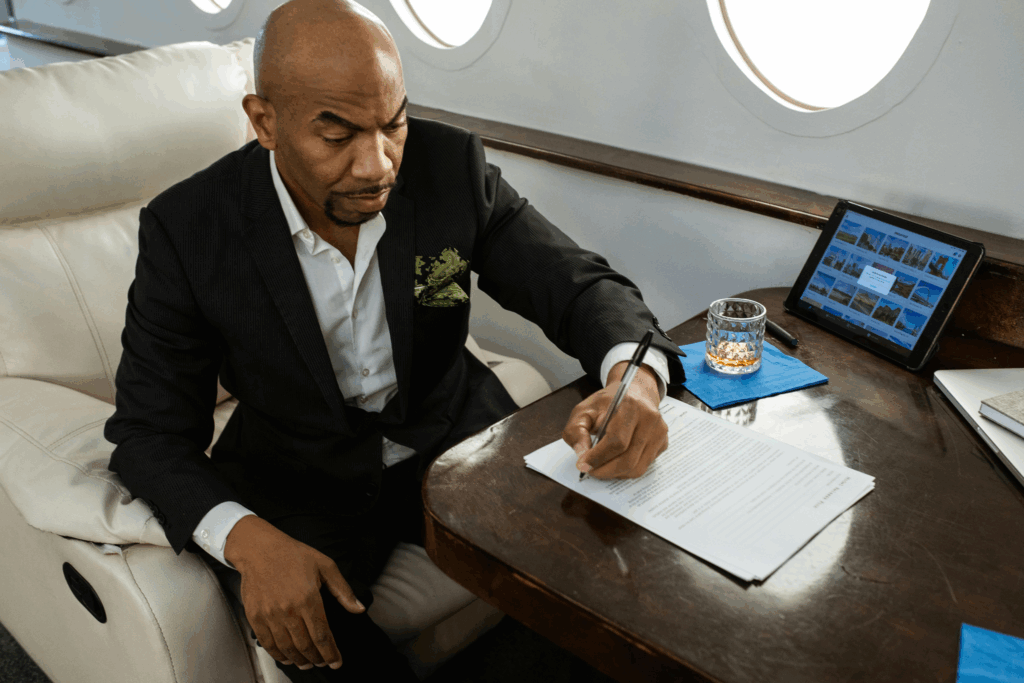For many Midlands business owners, success isn’t just about hitting targets or growing a company. It’s about building something that lasts. A legacy. And that legacy often ties together three core parts of life—your family, your business, and your long-term financial plans. When these are in sync, the result is more than stability—it’s sustainability across generations.
That’s where integrated wealth planning comes in. Firms like Maritime Capital help families and business owners think holistically about what they’re building. It’s not just about how much you earn or invest—it’s about what you pass on, how smoothly it transfers, and how well it serves both your loved ones and your life’s work.
Why Legacy Isn’t Just for the Ultra-Wealthy
Let’s clear up one myth right away: you don’t need to own a multinational conglomerate or a 200-acre estate to think about legacy planning. If you’ve built a small-to-medium-sized enterprise (SME), raised a family, or managed to grow your savings over the years, you already have the foundations of a legacy worth protecting.
Legacy, in this context, is less about the headlines and more about intention. It’s about ensuring your values—financial, personal, even philanthropic—are carried forward in a structured, thoughtful way. And when your personal life and business are closely intertwined, as they often are in family-run firms, the lines blur. You need a strategy that respects both sides.
The Ties That Bind: How Family and Business Interact
Family businesses carry a unique set of strengths—and pressures. You’ve likely heard the stats about how many family businesses struggle to make it past the second or third generation. The issue isn’t just operational. It’s emotional. Blending personal relationships with boardroom decisions takes serious intention.
Some common challenges include:
- Unclear succession plans
- Lack of financial education for the next generation
- Uneven involvement among siblings or heirs
- Blurring of personal and business expenses
Family wealth services help navigate this complexity. They bring clarity by outlining roles, drafting governance structures, and providing neutral ground to discuss difficult topics. Think of them as translators—helping everyone speak the same financial language.
Succession Planning: The Quiet Crisis Most Ignore
If you’ve been too busy running the business to think about succession, you’re not alone. But the absence of a clear plan is the single biggest threat to everything you’ve built. Handovers don’t happen smoothly by accident—they happen because someone planned for them in advance.
Succession planning includes:
- Choosing the right successor (inside or outside the family)
- Phasing responsibilities gradually to allow mentoring
- Clarifying ownership structures, tax implications, and legal controls
- Documenting everything, not just having “a chat over dinner”
Family wealth advisors help structure this so it’s fair, transparent, and tax-efficient. Most importantly, they keep the process on track so it actually gets done—not just talked about.
Protecting the Family Behind the Business
When you’re working 60-hour weeks or investing capital into growth, it’s easy to put off personal planning. But business success doesn’t automatically guarantee financial security at home. In fact, too much reinvestment without diversification can be risky.
Comprehensive wealth strategies ensure that your family has:
- Asset protection through trusts or insurance
- Tax-efficient income streams
- Emergency liquidity (especially if the business is illiquid)
- Education and mentoring to prepare future inheritors
These aren’t just technical details. They’re the safety nets that allow your family to thrive—whether or not the business hits every goal.
Governance: Not Just for Corporates
Family governance often gets overlooked. But clear structures, policies, and regular family meetings can make or break multi-generational success. It’s not about turning your household into a boardroom—it’s about giving everyone clarity and a voice.
This can include:
- A family charter that outlines values and expectations
- Regular reviews of business and investment strategies
- Defined roles for those involved in the family enterprise
These tools build trust and prevent small issues from becoming large divides. A little structure goes a long way when emotions and money mix.
Philanthropy and Purpose: Leaving More Than Money
Many families find that true legacy isn’t just measured in net worth, but in impact. That might mean charitable giving, supporting local causes in the Midlands, or starting a foundation. Purpose-driven wealth planning can align your financial strategy with what you care about most.
And it doesn’t need to be grandiose. Even modest giving, when structured well, can create lasting change—and bring the family closer together around a shared mission.
Why Business Owners Need a Personal CFO Mindset
If you’re running a successful business, chances are you know your way around a spreadsheet. But many business owners treat their personal finances as an afterthought—and that’s where things get risky.
Think of your family finances as a second business. A good wealth adviser acts like a personal CFO: helping you understand your income needs, stress-test your plans, and prepare for both expected and unexpected changes. The more strategic your approach, the more peace of mind you’ll have.
Midlands Matters: Regional Context, Real Opportunity
Family business is part of the fabric of the Midlands. From long-established manufacturers in Wolverhampton to property developers in Leicester, this region is built on generational enterprise. But as these businesses grow, so does the complexity of managing their wealth.
Local entrepreneurs face a unique blend of challenges—regional regulations, land or agricultural assets, and often a strong desire to keep wealth close to home. That’s why Midlands families benefit from advisers who understand the regional nuances and can offer strategies that align with both tradition and transformation.
Pitfalls That Cost More Than Money
Even well-meaning families can fall into traps that put their legacy at risk. Here are a few of the most common mistakes:
- Verbal succession plans: Get it in writing.
- No financial education: Don’t leave younger generations in the dark.
- Over-concentration: Diversify early, especially if the business is your biggest asset.
- Mixing personal and business funds: Keep it clean and clear.
Avoiding these can mean the difference between preserving a legacy and losing it in a tangle of confusion.
How to Choose the Right Family Wealth Partner
Not all advisers are created equal. When you’re dealing with business legacy and family dynamics, you need someone who understands both numbers and nuance.
Look for someone with:
- Experience with business-owning families
- Fiduciary obligations
- Transparent, fee-based pricing
- Great interpersonal chemistry
This person won’t just manage your money—they’ll help shape your future.

Final Thoughts: The Legacy You Leave Starts Now
Building a legacy isn’t just about protecting what you’ve earned—it’s about shaping what comes next. For your business. For your family. And for the future you want to create.
With the right team behind you and a strategy that blends all aspects of your life, you won’t just be running a business—you’ll be building a legacy worth inheriting.







